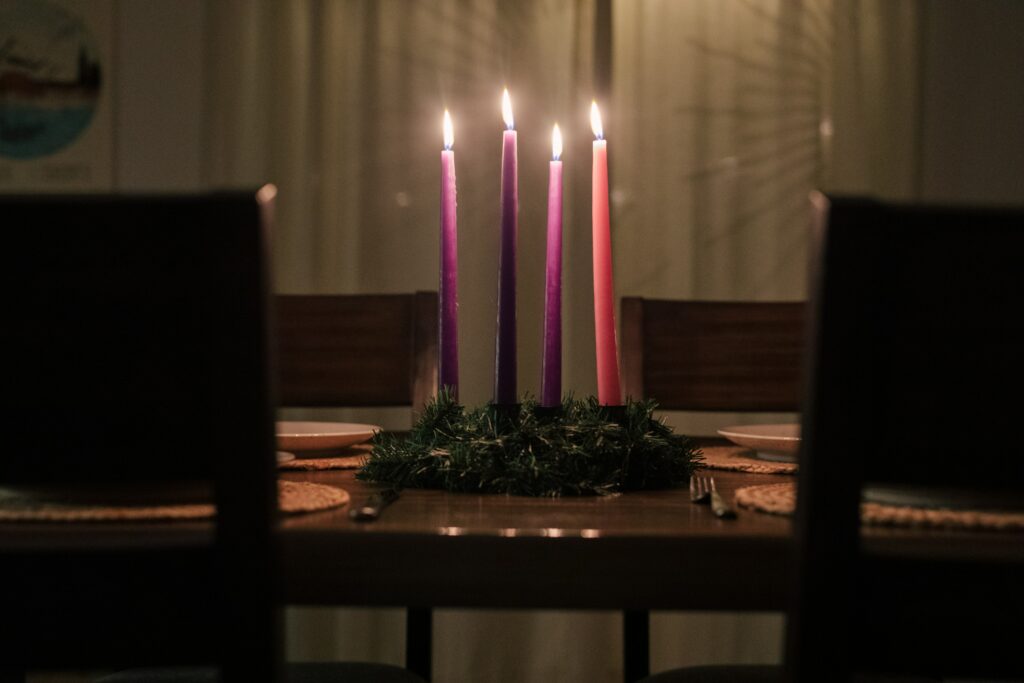
Benedict XVI released his letter, “Saved by Hope,” to coincide with Advent, the church’s great season of hope. In John Allen’s summary of the letter, he makes the point that a major concern of this pope is reasserting Catholic identity in a world dominated by earthly values. The theme of Benedict’s first letter was love. This one, focused on hope, continues to outline what Pope Benedict would have us—and the catechumens—understand as the core of the Catholic life.
How does hope save us?
If you don’t have time to read the entire letter today, at least read paragraph 3. The pope asks what does hope consist of, and how does hope save us? He answers his own question:
The essence of the answer is given in the phrase from the Letter to the Ephesians quoted above: the Ephesians, before their encounter with Christ, were without hope because they were “without God in the world”. To come to know God—the true God—means to receive hope.
The pope then makes what I think is a critical point, a point that is somewhat the theme of his papacy:
We who have always lived with the Christian concept of God, and have grown accustomed to it, have almost ceased to notice that we possess the hope that ensues from a real encounter with this God.
I find this is less true with those of us who work in initiation ministry. Our faith—our hope—is continually renewed when we see those who have been without hope for so long begin to “walk in the light of the Lord” (first reading, First Sunday of Advent, A). Nevertheless, many of us and many of our fellow parishioners can seem to the catechumens to be much like the rest of the world, tending to despair. Or at least not letting our joy spill over into the day-to-day affairs of our lives. Pope Benedict would ask each of us: do the catechumens and those in the world who are not walking in the light see the bright light of hope in us? Are we a beacon that draws the world to Christ our Hope?
Pope Benedict would ask each of us: do the catechumens and those in the world who are not walking in the light see the bright light of hope in us? Are we a beacon that draws the world to Christ our Hope?
A journey of hope
In the rest of that brief paragraph, Benedict goes on to describe the journey of faith of Josephine Bakhita, canonized by Pope John Paul II. She would not have been called a catechumen since the rite had not yet been restored in her lifetime. (She was born in 1869.) Yet, her journey, as described in the pope’s letter, is certainly the story of an inquirer who found the first glimmer of faith, who claimed that faith, and who went on to share that faith with others who were without hope.
[B]esides her work in the sacristy and in the porter’s lodge at the convent, she made several journeys round Italy in order to promote the missions: the liberation that she had received through her encounter with the God of Jesus Christ, she felt she had to extend, it had to be handed on to others, to the greatest possible number of people. The hope born in her which had “redeemed” her she could not keep to herself; this hope had to reach many, to reach everybody.
This Advent will be an opportune time to teach the catechumens one of the central tenants of Catholic identity—we are a people of hope. Stay close to the Sunday readings and the opening prayers for the Sundays of Advent. Ask the catechumens to connect their personal stories with the Scripture stories. And tell them the hope-filled story of Josephine Bakhita.










The link to John Allen’s summary of “Saved by Hope” is broken.
Thanks Sr. Janice. Fixed now.